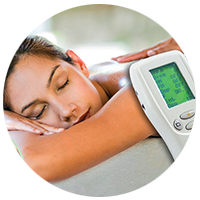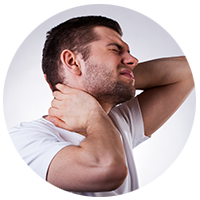Stress is the body’s reaction to any change that requires an adjustment or response. The body reacts to these changes with physical, mental and emotional responses.
Stress is a normal part of life. Many events that happen to you and around you, and many things that you do yourself, put stress on your body. You can experience stress from your environment, your body and your thoughts.
How does stress affect health?
The human body is designed to experience stress and react to it. Stress can be positive, keeping you alert and ready to avoid danger. Stress becomes negative when a person faces continuous challenges without relief or relaxation between challenges. As a result, the person becomes overworked, and stress-related tension builds.
Stress that continues without relief can lead to a condition called distress, a negative stress reaction. Distress can lead to physical problems including headaches, upset stomach, elevated blood pressure, chest pain and trouble sleeping. Research suggests that stress can also bring on or worsen certain symptoms or diseases.
How to help reduce stress levels
Having a classic Swedish Massage is fantastic for pain management, relaxation and stress reduction. Swedish Massage does not involve techniques that penetrate as deep into the tissue as Sports Massage therefore tends not to be as uncomfortable.
Most of our clients who use this service are looking for stress busting, relaxation sessions that help combat the detrimental effects of modern working practices. If you suffer from stiff necks, tight and painful shoulders or poor mobility in your lower back then we can help you with this service.
Dealing with stress is actually easier said than done. It is not a quick fix as even the obvious of ‘removing the stressful situation from your life’ is ‘A’ not always easy and ‘B’ the stress will have caused other issues within your body and mind. We will need to ascertain what has been going on in your life, what conditions or complaints have been created by the stress and then work out a way to start correcting this, reducing stress levels and returning you to a better condition of health and wellness.
Initially we do not need to ascertain what is causing your stress, only find an immediate way to help reduce it. Regular massages can really help remove the stress and tension. This is proven by companies that employ us for the day to treat their staff at their place of work. Stress is unproductive.
Get in touch today……
01243 514 158 or email us at enquiries@freshstarthealth.co.uk
More information on stress
Stress also becomes harmful when people turn to alcohol, tobacco, or drugs to try to relieve their stress. Unfortunately, instead of relieving the stress and returning the body to a relaxed state, these substances tend to keep the body in a stressed state and cause more problems.
Consider the following:
- The Health and Safety Executive says around 9.9 million working days are lost each year to stress, depression or anxiety.
- Occupations with some of the highest rates of work-related stress are education, health and social care, public administration and defense.
- Psychological problems, including stress, anxiety and depression, are behind one in five visits to a GP.
- Stress can play a part in problems such as headaches, high blood pressure, heart problems, diabetes, skin conditions, asthma and arthritis.
Stress can affect all aspects of your life, including your emotions, behaviour, thinking ability and physical health. No part of the body is immune, but, because people handle stress differently, symptoms of stress can vary. Symptoms can be vague and may be the same as those caused by medical conditions. It is important to discuss them with your doctor. You may experience any of the following symptoms of stress.
Emotional symptoms of stress include:
Becoming easily agitated, frustrated and moody, Feeling overwhelmed, like you are losing control or need to take control, Having difficulty relaxing and quieting your mind, Feeling bad about yourself (low self-esteem), lonely, worthless and depressed, Avoiding others.
Physical symptoms of stress include:
- Low energy
- Headaches
- Upset stomach, including diarrhoea, constipation and nausea
- Aches, pains, and tense muscles
- Chest pain and rapid heartbeat
- Insomnia
- Frequent colds and infections
- Loss of sexual desire and/or ability
- Nervousness and shaking, ringing in the ear
- Cold or sweaty hands and feet
- Excess sweating
- Clenched jaw and grinding teeth






